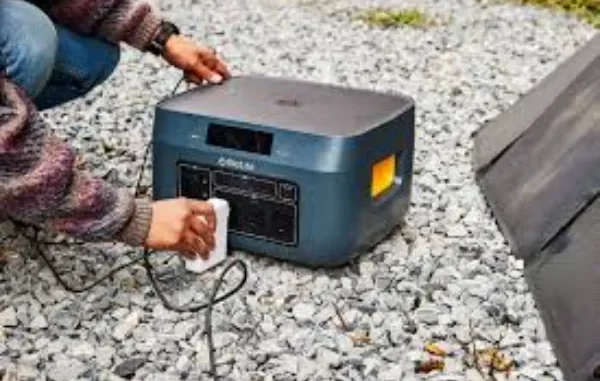
Extreme weather and grid instability have made blackouts a reality for many households. Traditionally, fuel generators were the go-to backup option, but new technology is changing the picture. Battery-based whole home generator systems are emerging as the cleaner, quieter, and more reliable choice for families who want peace of mind.

The Rising Need for Reliable Emergency Power
Power outages disrupt more than just comfort—they can compromise food storage, medical devices, and home security. In some regions, rolling blackouts are now routine, leaving families without power for hours or even days. The need for dependable backup power has never been greater.
A whole home generator provides coverage far beyond a portable unit. Instead of keeping only a few appliances running, it supports critical circuits or even the entire house, making blackouts far less disruptive. As battery technology advances, these systems are now a practical alternative to fuel-based solutions.
Fuel Generators: The Traditional Backup Choice
For decades, fuel generators have been the standard solution for home backup. Their advantages are clear:
- Affordable upfront cost compared to early battery systems.
- Long runtime as long as fuel is available.
But the drawbacks often outweigh the benefits for modern homeowners:
- Noise Pollution: Gasoline or diesel generators produce a constant, disruptive hum that can disturb neighbors and violate local ordinances.
- Exhaust Emissions: Combustion engines release toxic fumes, including carbon monoxide, making indoor or close-quarter use dangerous.
- Fuel Dependence: Stockpiling gasoline or diesel presents safety hazards and may be difficult during supply shortages.
- Maintenance Demands: Oil changes, carburetor cleaning, and routine test runs are required to keep the unit ready.
- Regulatory Restrictions: Many communities now restrict or ban generator use due to safety and environmental concerns.
Fuel generators work best as short-term solutions, but for extended or frequent outages, their limitations become more obvious.
Battery-Based Whole-Home Backup: The Modern Alternative
Battery-powered whole home generator systems offer a fundamentally different approach:
Quiet and Emission-Free
Unlike fuel units, battery systems operate silently and release no exhaust. This makes them ideal for suburban and urban neighborhoods.
Seamless Switching
Advanced systems detect outages and switch over in milliseconds. Sensitive electronics like computers or routers remain unaffected, ensuring uninterrupted work or study.
Modular Capacity
Homeowners can start with a few kilowatt-hours of storage and expand to cover days or weeks of power, depending on their needs.
Low Maintenance
With no engines or fuel tanks, battery systems require minimal upkeep. Built-in software manages charging cycles and extends battery lifespan.
Renewable Integration
Perhaps the biggest advantage: batteries pair seamlessly with rooftop solar. This allows for clean, renewable recharging during extended blackouts.
Smart Management
App-based controls let families monitor usage, prioritize essential loads, and optimize efficiency. Some systems even integrate with home automation for smarter energy use.
Fuel vs. Battery: A Direct Comparison
Reliability
Fuel generators can run indefinitely with fuel—but outages during storms often coincide with fuel shortages.
Battery systems recharge through solar or grid power, offering independence from supply chains.
Safety
Fuel units carry risks of carbon monoxide poisoning and fire hazards.
Batteries have multiple safety layers, including temperature monitoring and overload protection.
Experience
Fuel: noisy, smelly, and often disruptive.
Battery: quiet, clean, and unobtrusive.
Costs
Fuel generators cost less initially but require ongoing fuel and maintenance.
Batteries have a higher upfront price but lower lifetime operating costs, with long-term savings when paired with solar.
Scalability
Fuel units have fixed output.
Batteries can scale up in capacity as family needs change.
Everyday Scenarios Where Battery Backup Wins
Short Outages
A sudden blackout during dinner? With instant switching, lights stay on, the oven continues running, and family life goes on uninterrupted.
Severe Weather
During storms or blizzards, a whole home generator powered by batteries can keep heating, cooling, and refrigeration running for days, ensuring safety and comfort.
Remote Work and Learning
As more households rely on digital connectivity, uninterrupted Wi-Fi and laptop charging are essential. Battery backup ensures productivity never stops.
Medical Needs
For households with critical medical equipment, battery systems provide a safe and silent solution, unlike fuel units that pose exhaust risks.
Green Living
For eco-conscious families, combining solar with a whole home generator transforms outages into an opportunity to live sustainably and independently.
The Future of Home Backup Power
The transition from fuel to battery mirrors broader changes in energy. Municipalities are phasing out combustion-based solutions, while incentives for clean energy make batteries more affordable.
Future advancements will likely bring:
- Higher energy density, allowing smaller batteries to store more power.
- Faster charging, making systems even more convenient.
- Grid integration, where homeowners can sell stored energy back to utilities.
Whole home generators are becoming part of a larger energy independence movement, where families not only survive blackouts but also reduce reliance on fossil fuels.
Conclusion
Fuel generators once dominated home backup, but their noise, emissions, and limitations make them less suited to today’s needs. Battery-based whole home generator systems provide a cleaner, smarter, and more resilient alternative. In a future where outages are inevitable, they represent not just backup power, but a path to true energy independence.

Leave a Reply